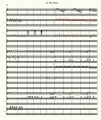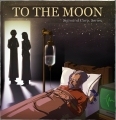Kan Gao
Freebird Games
First posted on 05 July 2012. Last updated on 05 July 2012.

|
| Kan Gao is the founder of Freebird Games and the creator of To the Moon. |

|

|

|

|

|
For more information, visit Freebird Games.
Few contemporary indie games have garnered the string of critical acclaim that Freebird Games' To the Moon has in recent years. Created by Kan Gao, the game has attracted a loyal fan base for its innovative storytelling that seeks to explore perhaps the most fundamental question about human existence—what defines the live of a person? Philosophers argue that it is the experience amassed over a lifetime by the person which defines an individual. In the game, this thesis is tested by a pair of scientists who attempt to alter the memories of a dying man in order to help him to fulfill his dreams and experience a life which he can no longer pursue in health—to go to the moon. However, when they begin to delve into the man's mind, they discover instead hidden fragments of his memories that together reveal a desire far more than just traveling through space. The game seeks to question whether or not the essence of a person is merely a collection of memories and experiences which, if altered, can redefine the person.
We are privileged to have an opportunity to interview Kan Gao, the founder of Freebird Games. In this brief interview, Gao speaks of his background as an indie developer, the inspirations behind his games, the philosophical and metaphysical themes explored in To the Moon, the importance of a good narrative, and what lies in the future for Freebird Games.
Check out our gallery of rare and previously unpublished concept and production art from To the Moon.
- What inspired you to become a game developer? What was your educational background that helped you to pursue this career?
- Like most other folks here, I've been playing games ever since I was a kid – it wasn't until one dark and stormy night of being stuck while working on a written story did I decide to turn it into a game, though!
As far as education goes, I graduated from a Business Admin & Computer Science program, which seems quite appropriate for the role.
- What were your favorite role-playing and adventure games of yesteryear? Why?
- I grew up in Asia, and a lot of the games I loved as a kid were titles that are obscure here since they were never localized. One particular RPG childhood favourite was Tun Town, which was about a boy who could speak to animals partaking in a war between the cats and dogs of a town. The writing was humorous, and the overall experience was really whimsical.
As far as more recent titles are concerned, I really enjoyed Dragon Age: Origins and the Mass Effect series – I thought they did a great job of adding a personal touch to epic-scaled story setups.
- What literal (such as books and films) influences or personal experiences did you draw from for the story in To the Moon?
- In its core, To the Moon was started as an attempt to turn some unfortunate personal events into something that was hopefully positive. One of them included my grandfather falling ill, which made me wonder about the inevitability of death and whether there would be things that I'd regret on my deathbed.
There were also some media influences; most notably Eternal Sunshine of the Spotless Mind and Memento for the storytelling devices.
- What lessons about game design did you learn from working on your previous game projects that benefited the development of To the Moon?
- "Don't try to make something what it's not just to fit expectations." To the Moon had a single goal of effectively telling a particular story, and I'm glad that I managed to avoid the temptations of adding more standard RPG elements just to make it more acceptable as a normal game, like some of my previous projects.
- When did the development of To the Moon begin? How large was the development team? How different was the workflow for this game project as compared to your previous game projects?
- It started as a side project that was meant to take a couple of weeks, and then I woke up a year and a half later and was like, "what happened?" No regrets, though.
While I was the only "official" developer, I was fortunate as to have many wonderfully talented people helping with various aspects when needed. In many cases, it was kind of like a bartering system – when I need something done that I cannot do myself, I'd knock on a friend's metaphorical door and trade an original composition or the like for it.
Overall, I think there were about 7 people who had their hands on the original content for the game.
- Why did you choose RPG Maker XP as the development platform? What other programming tools did you use to create the game?
- That's about it, actually. Considering what the game entails, RMXP works perfectly for its making, and is quite efficient at it as well. However, it does lack in portability, which is the one reason why I might be switching to a different engine in the future.
- What were the reactions (both positive and negative) of the critics and fans to the game that surprised you the most?
- I was a little surprised at how accepting most people were be of To the Moon's odd classification – or rather, the lack of a more proportionate gameplay component. I didn't really know what to expect, so that was a pleasant surprise.
As for the negative reactions, I think some of the perspectives on the ending came from angles that I haven't considered before. It was eye-opening, though, to see how many ways people can interpret things.
- The story of To the Moon touches on many philosophical and metaphysical themes on human existence (or the perception of human existence). In what depth does the game explore these themes? What is the moral message, if any, that you want to convey about dreams and despair in the game?
- I'd like to think that it gave people something to think about in that department, but I didn't really want to convey any direct moral messages – in the end, it's simply a story that's hopefully human, and whichever philosophical upbringings arise from the perspectives of the players.
- You describe To the Moon as more of an interactive story than a game. What role-playing and adventure gameplay elements are in the game? What experience do you want the player to take away ultimately from playing the game?
- The visual style is definitely reminiscent of classical RPGs, and the controls are similar to that of an adventure game. Overall, the purpose of this particular game is simply to tell a particular story effectively – so as long that's delivered, I'd be happy with the result.
- The ending of To the Moon alludes to future episodes. How many episodes are you planning? What lies in the future for the series?
- Aye – each episode will feature a new patient and their own life story, essentially making them standalone stories. At the same time, there will be a sense of continuity through the overarching plot between the same two doctors (Eva and Neil) who traverse through the memories, not to mention that it's possible that past characters, like Johnny and River, might make cameo appearances in future patients' memories.
The number of episodes itself is flexible, though.
- What narrative themes do you like to explore in your games? To what extent do you believe games are better or worse in telling a compelling story than films or books? Why?
- With To the Moon's series, I think grounded themes that are close to reality are what feel right at home – be it dealing with death or just frivolous happenstances of life.
As far as the perks of storytelling in games compared to films or books go, I think the interactivity brings about a whole new level of audience involvement. It's often underestimated, too; even just being able to “walk†via the agency of the controlled characters through the environment in which a story takes place at can create a significant impact.
And as for disadvantages, the non-linearity, even in supposedly linear games, can cause a disruption in the intended flow of the story – and things can go wrong when the pace is out of control unintentionally.
- What can we expect from Freebird Games in the next 5 years? What is the next game project for your company?
- The next project would be episode 2 of To the Moon's series, or rather, a short project that will be linked to it. We'll definitely be continuing to focus on story-driven ventures, and will try our best to remain consistent while learning via feedback from players on To the Moon.